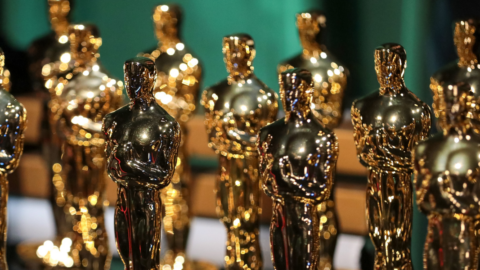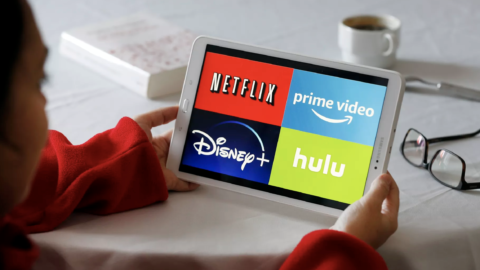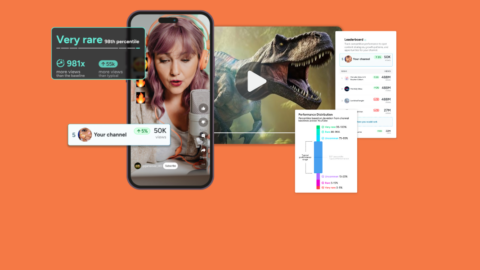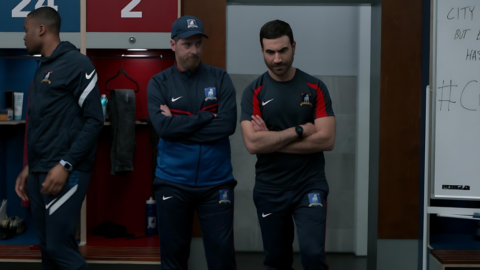Interviews with BENLabs Women Executives
Women have made remarkable progress in the workplace; however, the Entertainment industry overall still remains a male-dominated field. “In 2019, the number of women working in the film industry reached an all-time high, however, men still outnumbered women four to one in key roles.” (Source) Women remain underemployed as directors, writers, producers, editors, and cinematographers and this underrepresentation stretches to almost every corner of the business, except perhaps the Product Placement industry.
The Product Placement industry has historically been built and dominated by women. Interestingly enough, the very first product placements on the radio during the 1900s were soap brands sponsoring full-length radio SOAP operas that told women-centric stories. To honor National Women’s Day, we sat down with just four of the many powerful women who work at BENlabs to talk about their experiences as women in the product placement industry.
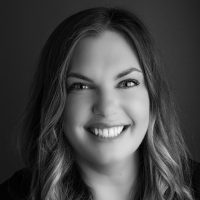
ERIN SCHMIDT
As Chief of Product Placement, Erin is a proud leader of BENlab’s Product Placement team. She has over 16 years of experience in bringing brands into entertainment to drive sales and empower content creators. She has been with BENlabs from the very beginning, starting her career at Norm Marshall Entertainment & Marketing, one of the pioneering companies in product placement.
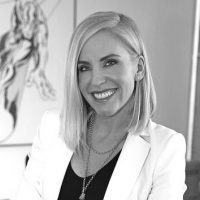
Caressa Douglas
Caressa has been working in the Product Placement industry since she was 21 years old! With a career dedicated to Entertainment Marketing, she has contributed to the evolution of product placement and converged brand marketing strategies. She has been a part of this company since 1999 and is now the SVP of Product Placement Optimization at BENlabs.
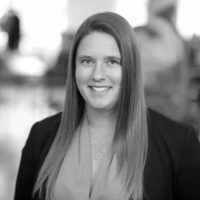
Karen Kehm
Karen has been working at the intersection of brand marketing, technology, and entertainment media for 10+ years driving strategic and cross-functional activations through industry events, media partnerships, and PR. As Senior Director of Marketing, Karen shines a light on the product placement industry by finding meaningful ways to engage both brands and creatives through partnerships, storytelling, and education.
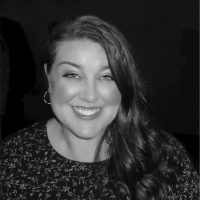
Stephanie Dade
Stephanie began her entertainment career in production learning the ropes as a producer’s assistant across both feature films and television. She is now an award-winning and Emmy-nominated creative executive, currently the SVP of the Product Placement Global Content and Integration Execution team at BENlabs.

Q: How do you see the entertainment industry changing regarding productions created by or geared toward women?

Stephanie Dade: We are seeing more content from female creators than ever before, but the industry still has a long way to go. It used to be standard practice to have one female writer staffed on a show or one episode directed by a woman (out of 22) per season – it was rare to see big-budget films directed or written by a woman (outside of the rom-com genre), but thankfully those days are gone. That said, there remains a challenge with recognizing women’s excellence and achievement at the highest levels of the industry (see this year’s list of Oscar’s Best Director nominees) – and there is a major opportunity for improvement in this area.

Karen Kehm: I believe a big shift came when Reese Witherspoon created Hello Sunshine back in 2016. This media company puts women at the center of every story they create, celebrate, and discover. It is one of the few production companies that have an all-women C-suite and a staff that’s almost entirely female, which stands in stark contrast to the rest of Hollywood. From my perspective, it was one of the first times we saw a well-known actress voicing publicly that she decided to create the content and stories SHE wants to see and was also able to get coverage from a media perspective on that stance. The studio’s content became award-winning and I believe this inspired and paved the way for other women in the industry.

Q: Has the PP industry specifically changed? How so?
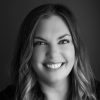
Erin Schmidt: Yes, majorly! I’m second-generation Product Placement so I have seen so much of this change. In 1979, Norm Marshall founded Norm Marshall & Associates, one of the pioneer product placement agencies, and my mom was his very first hire. He hired her because she had just had me and her boss didn’t think that women with children should work. However, Norm always empowered strong women. During this time most women in this industry were movers, leaders, and breadwinners for their families and I don’t think that has changed. We are now also seeing more and more female prop masters, which is really exciting! Although the first female prop master just recently retired, she really spearheaded the rise of female prop masters around the world.
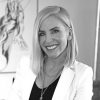
Caressa Douglas: The core of Product Placement is the same, which is empowering the creative through the power of brands. The industry of Product Placement has, historically, been dominated and built by women. In fact, the first agency I worked at was COMPLETELY women. The success I have had in this field is directly correlated to the mentorship of women. Product Placement executives across the landscape, from studios to agencies are mostly women. In my experience, women are stronger nurturers, which contributes heavily to investing in and maintaining relationships that collaborate with brands and our agency. Women can also be stronger and more patient listeners, which opens up the conversation of how brands can enhance their storytelling.

Q: Why should women, in particular, include product placement in their productions?

Stephanie Dade: Authenticity matters in storytelling – utilizing real brands gives the audience an understanding of a character or setting in an instant. What car they drive, accessories they use, what they drink, and how they live provide added insight into the character in a way that which often dialogue wouldn’t achieve. Female creatives (in my experience) are very cognizant of this, but also tend to have tighter budgetary constraints with their projects – product placement is a necessary tool that they can use to still bring their vision to life.

Karen Kehm: I don’t think it’s why should women place Brands in their productions, it’s more focused on: will a product help shape that particular character or storyline? If the answer is yes (which it usually is) then it’s important for that person to know where to go to find it. BENlabs has been a partner of the production community for over 40+ years. As a trusted partner, productions know they will get the service and product they need to help drive their story forward with more white-glove service than they would ever expect! Yes, BENlabs inherently represents the brand, however, we ultimately want to empower the creatives. That’s what makes the world of product placement so unique.

Q: What can productions be doing better to be more female-inclusive?

Erin Schmidt: One thing we can be doing better is educating all people on all the opportunities that exist within the entertainment industry. Although I grew up in this world, not many people know about Product Placement when exploring career opportunities. We need to ensure that young professionals are aware of the variety of jobs that exist in this space so that we can build a more diverse community with more women and people of color behind the scenes. A second thing we can be doing better is creating more great female characters. Taylor Sheridan did a phenomenal job writing the male leads for the show Yellowstone because the viewer is able to connect with their characters immediately. However, it wasn’t until season three of the show that Beth, the female lead, really became a fully rounded character. I think that even if a man is writing a female lead, he should be encouraged to really understand how to give a woman a full 360 perspective right off the bat.

Caressa Douglas: This is a larger conversation that needs to come from the top of the decision-makers down to each jurisdiction of production. Studios and producers need to mandate inclusive hiring but are often posed with the challenge of a lack of availability of diverse contributors and crew. Hollywood productions are union run; therefore, the unions need to recruit and/or increase the ease of accessibility of membership for women.

Q: What can brands be doing better to be more female-inclusive?

Stephanie Dade: Brands can make an impact by supporting content created by women and those which focus on amplifying female voices through storytelling. When considering a project to support, look at the creative team involved both in front of & behind the camera, determine if it passes the Bechdel Test, and if there is an authentic alignment with your brand.

Erin Schmidt: First, brands can invest in more female content. On average, women have more buying power and are often buying for the entire family. Brands can better understand and reach their female consumers by finding content that targets female audiences. Second, brands should focus on working with more female creators who are often the ones creating content for women. So, I think it’s twofold. It is (1) understanding your audiences, where you should be targeting, and why you should be targeting women and, (2) also working with those female creators who are creating content for women.

Q: What are some productions or brands that are doing it right?

Karen Kehm: I always think of Old Navy when asked this question. They had a campaign focused on women of all shapes and sizes and they leveraged entertainment moments to lean into that message. Old Navy really aligned with the right properties across the board from Queer Eye to Never Had I Ever. The campaign even won the AdWeek Brandstorytelling Awards!

Stephanie Dade: Hello Sunshine has set a new standard as the first major production company to put women at the center of every project – both on-screen and off. It shouldn’t be surprising that they’ve been so successful both creatively and in delivering massive global audiences – but their model is still considered “novel” or “niche” and has not yet driven sweeping change across the industry.

